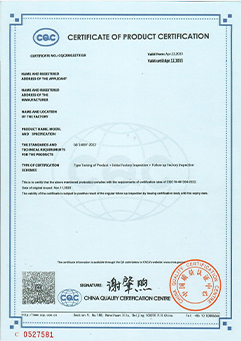j2064 ac hose
Dec . 04, 2024 02:38 Back to list
j2064 ac hose
Understanding the J2064 AC Hose A Key Component in Automotive Air Conditioning Systems
When it comes to automotive air conditioning systems, the components involved play a crucial role in ensuring optimal performance and efficiency. Among these components, the J2064 AC hose stands out as a significant element that helps transfer refrigerant and maintain the cooling process within the vehicle. In this article, we will explore what J2064 AC hoses are, their specifications, applications, and why they are vital for the proper functioning of automotive air conditioning systems.
What is the J2064 AC Hose?
The J2064 designation refers to a specific standard established by the Society of Automotive Engineers (SAE) for automotive refrigerant hoses. This standard outlines the performance and quality requirements for hoses used in mobile air conditioning systems. The J2064 AC hose is designed to carry refrigerants and lubricants while withstanding the high pressures and temperatures associated with automotive AC systems. It is typically constructed from durable materials that provide resistance against damage, wear, and environmental factors.
Key Characteristics
One of the standout features of the J2064 AC hose is its multi-layer construction. This includes an inner layer that is resistant to the corrosive effects of refrigerants, an internal reinforcement layer for pressure resistance, and an outer layer that offers protection against abrasion and UV light. This robust structure ensures that the hose can maintain its integrity throughout its service life, even in harsh conditions.
J2064 hoses are rated for varying pressure levels, making them suitable for both low and high-pressure refrigeration systems. They also come in different sizes and lengths, allowing technicians to choose the right hose for specific applications within different vehicle models.
Applications
j2064 ac hose

The J2064 AC hose is widely used in the automotive industry, particularly in vehicle air conditioning systems. It connects various components such as the compressor, condenser, evaporator, and expansion valve, facilitating the movement of refrigerant gas through the system. This movement is essential for producing cold air within the cabin of the vehicle.
Beyond traditional vehicles, J2064 hoses are also applicable in commercial refrigeration and heavy-duty equipment, reflecting their versatility and importance in other sectors.
Importance of Proper Maintenance and Replacement
The longevity and performance of J2064 AC hoses can be compromised by several factors, including environmental exposure, age, and system pressure fluctuations. Over time, hoses may develop leaks, cracks, or other forms of damage. Regular inspections and timely replacement of damaged hoses are vital to prevent refrigerant loss and ensure efficient cooling performance.
When replacing J2064 hoses, it is essential to use hoses that meet the SAE J2064 standards to ensure compatibility and reliability. Technicians must also consider the specific requirements of the vehicle’s AC system to select the appropriate size and type of hose.
Conclusion
In summary, the J2064 AC hose is a crucial component of automotive air conditioning systems, playing a vital role in maintaining the performance and efficiency of these systems. Understanding the specifications and proper maintenance of J2064 hoses can help car owners and technicians alike to ensure their vehicles remain comfortable, efficient, and reliable. As with any automotive component, prioritizing quality and adhering to established standards is key to achieving the best results and prolonging the vehicle's lifespan.
